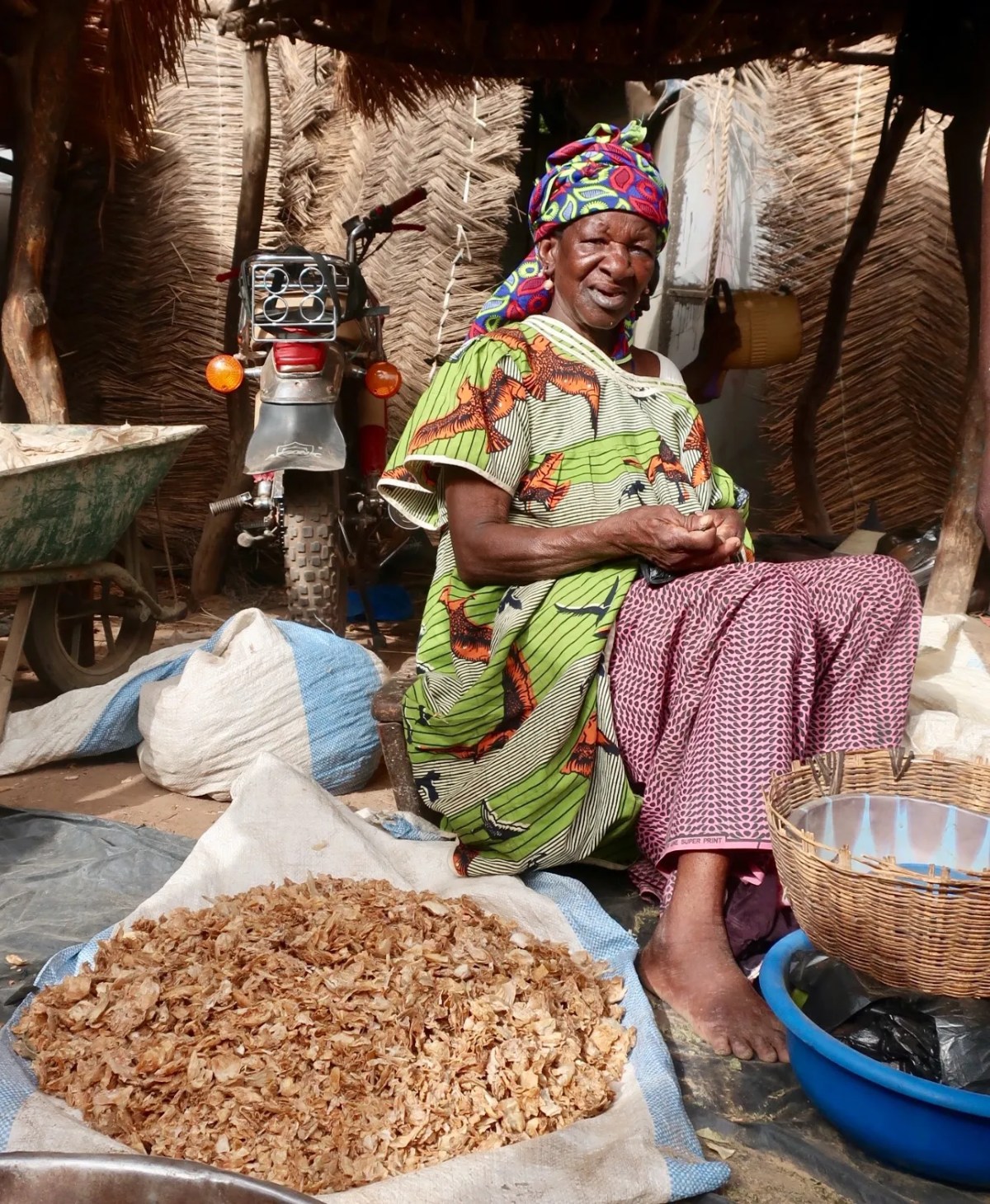Djenne a home of the world’s largest mud mosque, a famous Monday market and protected from the surrounding flood plains by a virgin sacrifice! What’s not to like!
Djenne is famous for having the worlds largest mud mosque! It’s a lovely small town set in the middle of flood plains so depending on what time of the year you visit, you might drive in or you might take the ferry, as Djenne becomes an island in the rainy season. The locals say Djenne has never flooded though as a younger girl was sacrificed to ensure this would never happen (‘of course it had to be a girl I said to my guide’). You can visit her tomb on the edge of the village.

The town is lovely to walk around, with life very much conducted in the open. Doors aren’t closed and everyone knows everyone’s business. Kids run from house to house, dodging the gunk and water in the open drainage system which runs in the middle of every alleyway. Given its the height of the summer it doesn’t always smell great but at least the sewerage systems are all self contained in each house (effectively they just dig the deepest hole possible for the toilet and use a pump to empty it out every ten years).

People here are incredibly friendly and we’re helpful with directions every time I got lost! And kids ran after me saying ‘toubab, photo’ most of the day. None of them wanted money they just wanted to check out what they looked like on screen. And, thankfully, no one asked for bonbons.


At the same time the bush taxis arrived disgorging their passengers, mostly women buying and selling. Bush taxi conductors are good business men who are geniuses at space optimisation. Everything and everyone fits in. More importantly he always remembers who has paid and who hasn’t. It is typical for people to pay for the transport at the end of the day, after their sales have been made. If they have had a bad day, they can normally pay the following week – the conductor won’t forget.





Finally the Chinese tat section – plastic sandals, mobile phone chargers, cheap electricals etc…. the locals say that the Chinese perfectly understand the African mentality to buy cheap, even though they know the products don’t last. Adjacent to the market are the services… skinny men under a tarp with ancient foot operated singer sewing machines, the bike repair men and the ever present mobile phone vendors. Dotted throughout the market are women selling water, drinks and deep fried donuts (the perfect sustenance for a hot day).
The highlight of town is the grand mosque, which they ‘re-mud’ every year before the rainy season. It is a spectacular building which changes colour during the day with the light. Historically non muslims are not allowed to enter. However, I was approached by the son of town chief who told me they need money for ongoing repairs, and if I was willing to make a donation he could show me around. I passed.


 Later in the afternoon I wandered back to the market. ‘La pluie est le poussiere menace’ I was told…. ie there was a storm coming. The dust started blowing and people started packing up earlier than usual. I bought a few supplies – some local biscuits, more mangoes, a melon and some water bags. The long winded process of the early morning happened in reverse with everything being stuffed back into trucks and buses.
Later in the afternoon I wandered back to the market. ‘La pluie est le poussiere menace’ I was told…. ie there was a storm coming. The dust started blowing and people started packing up earlier than usual. I bought a few supplies – some local biscuits, more mangoes, a melon and some water bags. The long winded process of the early morning happened in reverse with everything being stuffed back into trucks and buses.

The poorer kids in town were crowded around the fruit stalls gorging themselves on the rotten mangoes which wouldn’t sell another day….. apparently they often get quite sick doing this but still can’t help themselves. The pile of rotten discarded mango skins was almost obscured by the flies. By late evening there was little evidence apart from discarded plastic that anything had happened at all in town that day, and Djenne would stay her sleepy habitual self until the next Monday.

I stayed at campement Houber which is located in town and very close to the mosque. It is basic but clean and had AC. Don’t expect water all day as there are regular shortages.
 I had a local guide when I was there, arranged through Papillon Reizen. You don’t really need a guide, but it isn’t a terrible idea as I would have gotten pretty lost in the windy alleys without him, plus he took me to the great viewpoints and fed me s delicious lunch
I had a local guide when I was there, arranged through Papillon Reizen. You don’t really need a guide, but it isn’t a terrible idea as I would have gotten pretty lost in the windy alleys without him, plus he took me to the great viewpoints and fed me s delicious lunch
May 22, Djenne, Mali


You must be logged in to post a comment.